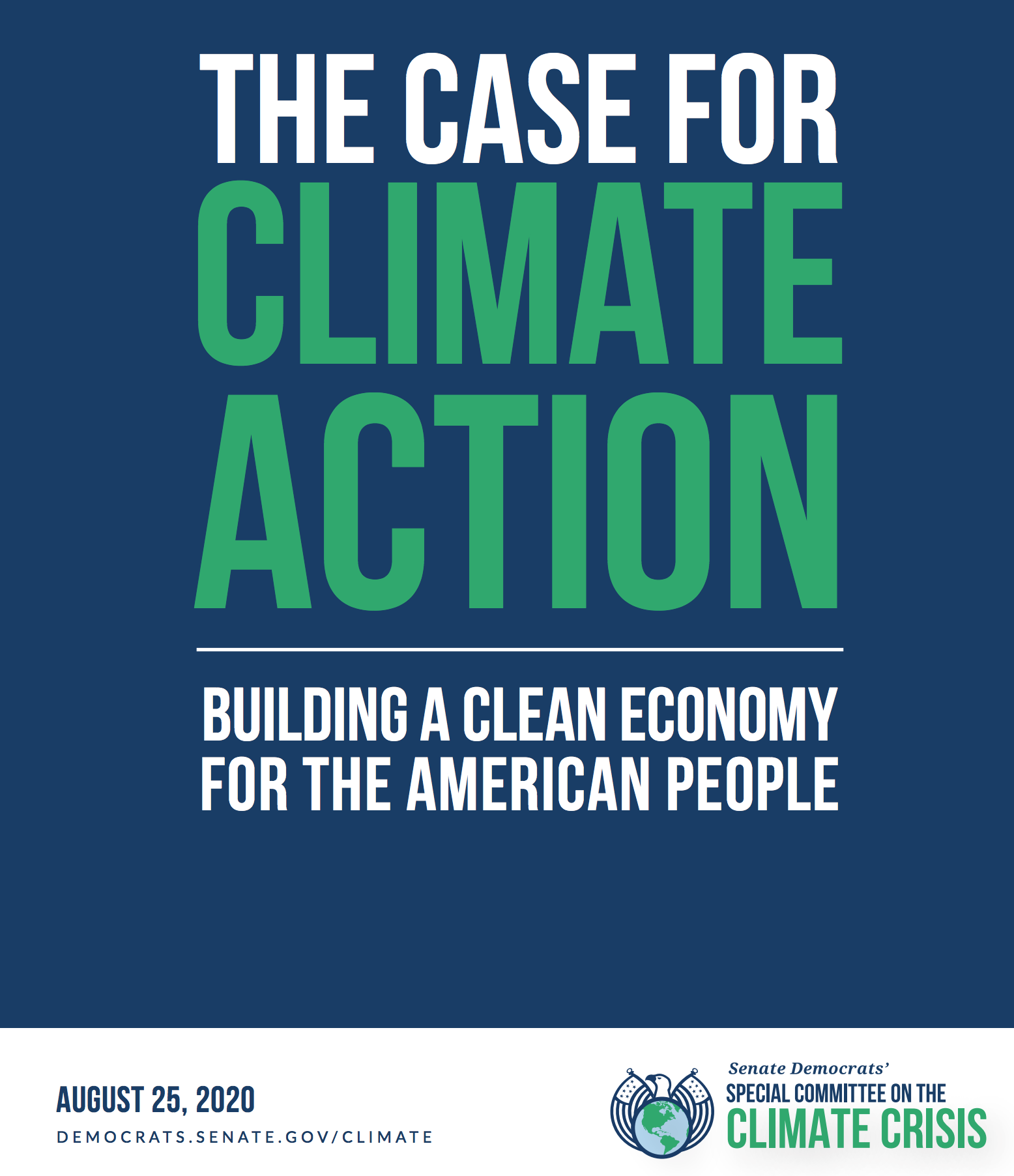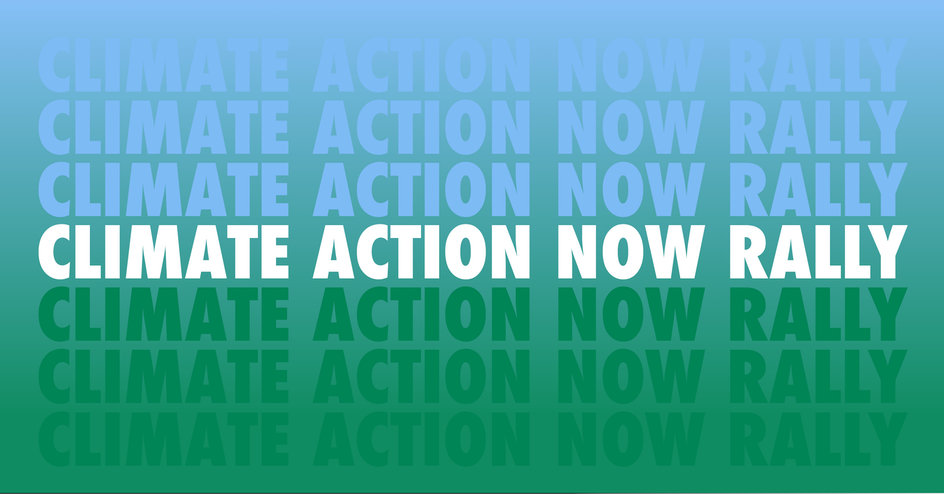 The
Senate Democrats’ Select Committee on the Climate Crisis has released a
263-page report
detailing a “clean economy” agenda with “bold climate solutions.”
Entitled “The Case for Climate Action: Building a Clean Economy for the
American People,” the report, which repeatedly emphasizes economic
growth and job
creation,
was developed by the ten-member committee chaired by Sen. Brian Schatz
(D-Hawaii).
The
Senate Democrats’ Select Committee on the Climate Crisis has released a
263-page report
detailing a “clean economy” agenda with “bold climate solutions.”
Entitled “The Case for Climate Action: Building a Clean Economy for the
American People,” the report, which repeatedly emphasizes economic
growth and job
creation,
was developed by the ten-member committee chaired by Sen. Brian Schatz
(D-Hawaii).
Legislation must now be developed to meet the overarching goals of the
committee:
- Reduce U.S. emissions rapidly to help achieve 100 percent global
net-zero emissions no later than 2050.
- Stimulate economic growth by increasing federal spending on climate
action to at least 2 percent of GDP
annually—and ensure that at least 40 percent of the benefits from
these investments help communities of color and low-income,
deindustrialized, and disadvantaged communities.
- Create at least 10 million new jobs.
The report, while largely in the spirit of the Green New Deal platform –
in particular in the listing of recommendations from environmental
justice
leaders
– avoids any mention of that phrase. Several of the photographs in the
report are of rallies and marches of Green New Deal advocates.
Unlike most Green New Deal advocates, the report makes space for “safer
nuclear power” and “fossil generation paired with carbon capture and
storage.” “Carbon capture and removal technologies are an essential
supplement to decarbonization,” the report argues in an extended
section.
An entire chapter of the report is dedicated to “Dark Money” –
specifically, the “undue influence from the leaders of giant fossil fuel
corporations” who “used weak American laws and regulations governing
election spending, lobbying, and giving to advocacy groups to mount a
massive covert operation” to “spread disinformation about climate change
and obstruct climate action.”
In order to advance bold climate legislation, we must expose the
covert influence of wealthy fossil fuel executives, trade
associations, and front groups that have done everything possible to
obstruct climate action.
The report credits the U.S. Supreme Court’s Citizen United decision
with allowing “fossil fuel political power to effectively capture
Republican elected officials nationwide.”
In addition to ten hearings, the committee held twelve in-depth hearings
with advocates, four of which were exclusively with corporate executives
(utilities, health care, insurance, and banks). Two meetings were held
with international representatives (a United Nations representative and
European central bankers). Two meetings were with union officials (one
included environmentalists); two were with environmental justice
activists and mainstream environmentalists; one was with youth climate
activists. The last meeting was with surfers and surfing industry
representatives.
Notably, the committee did not meet with any climate scientists in
academia.
Download the report here.
 Join
Congressional leaders for a
Join
Congressional leaders for a  The
Senate Democrats’ Select Committee on the Climate Crisis has released a
The
Senate Democrats’ Select Committee on the Climate Crisis has released a